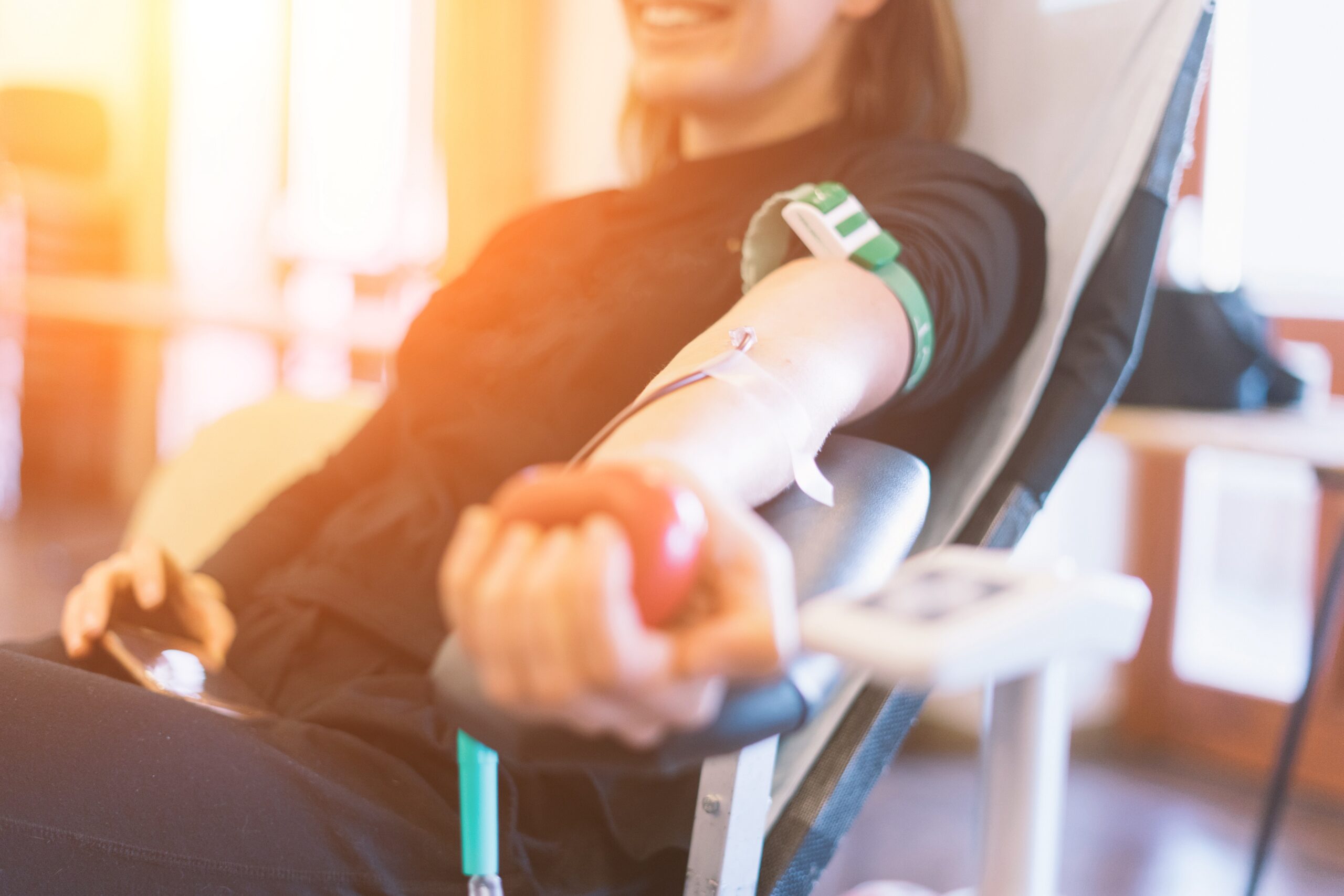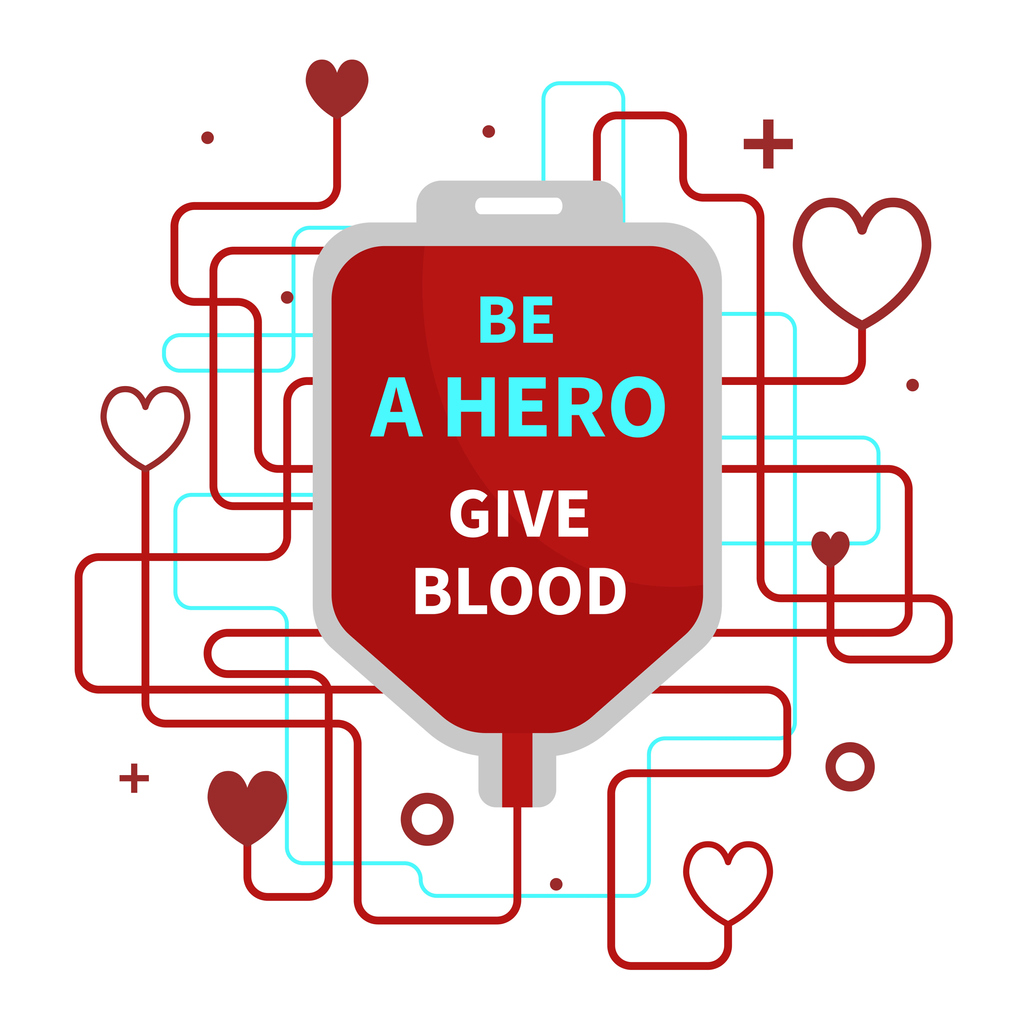

Are you one of the estimated 6.8 million people in the US who donate blood each year? If not, have you ever thought about becoming a donor? January is National Blood Donor Month, so I’m dedicating this blog to the facts about blood donation, to salute current blood donors and encourage more people to donate.
According to the American Red Cross, every two seconds someone in the US needs blood. They need it for surgery or cancer treatment, or to treat a chronic illness or traumatic injury. But blood and blood products cannot be manufactured. In the US, our blood supply comes from volunteer donors, who give 13.6 million units of whole blood and red blood cells each year.
While that might sound like a lot, consider that a single car accident victim can require as many as 100 units of blood. An estimated 1.8 million new cases of cancer are expected to be diagnosed in the US this year, and many of those people will need blood. About one in seven people entering a hospital needs blood. In all, 4.5 million Americans need a blood transfusion each year.
Looking at these facts, it’s clear that the need for blood far surpasses the supply, which is even thinner this year as many blood drives were cancelled due to COVID-19. More donors are drastically needed. I assure you, the strict regulations on blood donation centers today make donation safe. And it’s a simple process.
To donate blood in most states, you must be at least 17 years old, weigh at least 110 pounds and feel healthy. If you meet these criteria, you can donate one pint of blood, which is the most common form of donation, every 56 days. One pint of blood can save up to three lives.
Before you donate, staff at the donation center will take a medical history and perform a “mini-physical.” They take your pulse, temperature and blood pressure. They also check the hemoglobin level in your blood to test for anemia. My donation center makes my test results, which include my cholesterol level, available to me a few days later on a secure website.
Donating whole blood takes about 45 to 60 minutes, but if you’re donating platelets or plasma, which is done through a process called apheresis, that can take one and a half to two hours. Afterward, you remain at the center for a short time to be sure you suffer no side effects such as dizziness or nausea. Center staff will give you something to eat and drink while you wait.
You should avoid caffeine and alcohol after donating blood, and avoid heavy lifting and intense exercise for a day or two. You may experience slight bruising around the donation site. Apply ice or cold compresses to prevent this.
Blood donation can save the lives of the blood recipients. It benefits people with internal or external bleeding, those who have sickle cells disease or other illnesses affecting the blood, people undergoing cancer treatment or surgery, those with an inherited blood disorder, and those undergoing organ transplantation. It truly is a “gift of life” for these individuals.
But there are also benefits to blood donors. For one thing, the mini-physical can offer excellent insight into your health. It can detect problems that could indicate an underlying medical condition or uncover risk factors for certain diseases.
Donated blood is tested for a number of diseases including hepatitis B, hepatitis C, HIV, West Nile virus, and syphilis. It is also tested for the parasite Trypanosoma cruzi, which causes Chagas disease. If left untreated, Chagas disease can lead to congestive heart failure.
In addition to benefiting your physical health, blood donation benefits your emotional wellbeing as well. According to a report by the Mental Health Foundation, helping others through blood donation can reduce stress, help get rid of negative feelings, and provide a sense of belonging and reduce isolation.
When you donate blood, you provide a vital service to your community and make a difference in the lives of others. Won’t you consider becoming a donor today. If you’re already a donor, thank you for your gift of life!





Leave a Reply